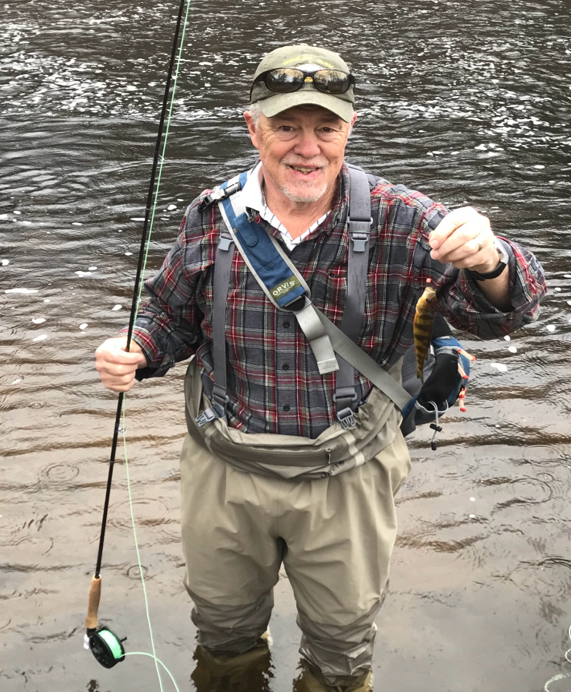WRITING ON THE FLY, By George Liset
It was turning into a beautiful spring evening with a couple more hours of daylight ahead. I decided to take a ride to one of the nearby ponds to work on my casting. I picked a pond that would allow me to lay out some line to work on some casting techniques and maybe even get into a few fish.
New England in general is what I would term a hardscrabble area. It is a difficult land to make a living from. How many times have you taken a walk in the woods and come across a stone wall and wonder why someone would build one in such a remote area? Those stone walls once delineated the boundary line to someones farm or field. Many a plow blade was broken on those stones. Many New England farmers, after serving in the Civil War and seeing how fertile the land was in states like New York and Pennsylvania and further south, up and left their farms and moved their families.
The same could be said of New England rivers and streams. Many are lined with trees and brush and are strewn with boulders and tree branches. Most fly fishing can be done with a short 7 foot to 8 and a half foot rod and a short amount of line. A fly fisher doesn’t often have a chance to cast 30 or 40 feet of line out like they do out west.
Back East we have to work on our short game so to speak. We use a lot of roll casts and D casts because our backs are usually to the brush and we cannot perform a back cast. So a chance to get on a pond to work on your casting is essential.
As I strung up my 9 foot fly rod I watched the water to check out any activity. It seemed pretty quiet as I began to cast. The first few cast were really ugly. I was hurrying my casts and could hear the fly snapping at the end of the back cast. I had to remind myself to slow down and be patient. As I began to relax, the line seemed to glide out in front of me and gently land on the water without the big splash.
Out of the corner of my eye I could see some activity on the water,and then a pair of eyes. My buddy, Mr. Beaver was making his presence known. At that point I’m thinking that any chance of getting a fish might be problematic. He swam close to shore, then in a gradual arc out in front of me. He swam back and forth in front of me getting closer each time. I kept casting. On his last approach I hear a big slap of the tail on the water accompanied by a big splash, and off he swam.
As it turned darker and the sun began to set, I felt a tug on my line. I landed a nice 10” trout. On my next cast I felt another tug but reacted too soon and lost the fish. In the course of another thirty minutes I landed two more ten inch trout and lost two more.
I was using my heavier 6 weight rod which is not as sensitive to smaller fish. Next trip I’ll bring my 3 weight rod and work on my short game, because after all, that is New England fishing.
A writer from Dover, George Liset writes about all things Fly Fishing. George has worked as a lobsterman, lifeguard, wrangler, boat captain, fishing instructor, and has traveled in most of the lower 48 states. Upon graduation from Wheaton College, Illinois, George began his teaching career and currently teaches in Dover and has coached Track and Field most recently at UNH. Liset has been published nationally and internationally in the area of track and field and coaching.





